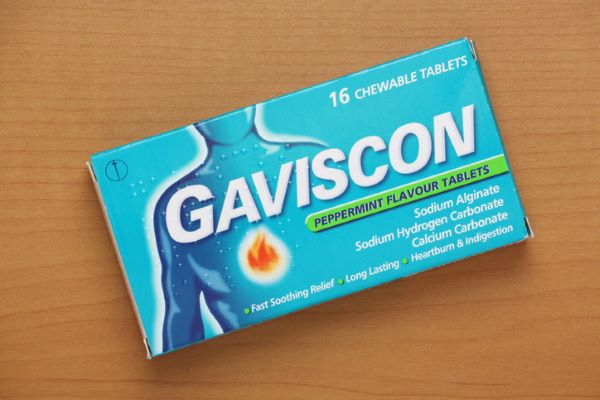ii view: Reckitt Benckiser shares tumble as sales fall
Shares in this FTSE 100 company have underperformed the main stock market index by around 18% over the last five years. We assess prospects.
28th February 2024 11:39
by Keith Bowman from interactive investor

Fourth-quarter and full-year results to 31 December 2023
- Q4 adjusted Like-for-Like (LFL) revenue down 1.2%
- FY operating profit down 22% to £2.5 billion
- Final dividend of 115.9p per share
- Total full-year 2023 dividend up 5% to 192.5p per share
- Net debt down 9% to £7.3 billion
Chief executive Kris Licht said:
“While our performance in Q4 was unsatisfactory, we look to 2024 and beyond with confidence. We target another year of mid-single-digit growth in Health and Hygiene, driven by a more balanced contribution from price, mix and volume. We expect Nutrition to return to growth late in the year.
“We will advance our fixed cost optimisation programme, and we will further increase cash returns to shareholders, aiming to double what we returned in 2019.”
- Invest with ii: Open a Stocks & Shares ISA | ISA Investment Ideas | Transfer a Stocks & Shares ISA
ii round-up:
Hygiene, health and nutrition company Reckitt Benckiser Group (LSE:RKT) today detailed fourth-quarter sales comfortably missing City estimates.
A fourth-quarter net revenue decline of 1.2% missed analyst forecasts for growth of 1.6%, with growth of 5.2% at its Hygiene business offset by declines at both Health and Nutrition. Seasonal flu factors caused a 2% revenue retreat at Health, with continued challenges at Nutrition including a voluntary recall of its Nutramigen product resulting in a 14.8% revenue fall. Inappropriate employee actions and a resulting investigation also added to the company’s challenges.
Shares in the FTSE 100 company fell as much as 11% in UK trading having come into this latest news up by 1% over the last year. That's in contrast to a 2.5% fall for the FTSE 100 index over that time. Consumer goods giant Unilever (LSE:ULVR) has fallen by 5% over the last year.
Reckitt operates across the three divisions of hygiene, health, and nutrition, with brands including Dettol, Harpic, Lysol, Air Wick, Calgon, Clearasil, Gaviscon, Nurofen, Strepsils and Vanish.
Overall group operating profit for the full year 2023 slumped 22% to £2.53 billion. New chief executive as of October, Kris Licht, quickly announced a strategy review, with pushes now including ongoing investment into product superiority, optimising costs, as well as improving the consistency of its market execution.
Accompanying management forecasts for the year ahead included like-for-like (LFL) net revenue growth of between 2% and 4%, potentially up from 2023’s +3.5%, with adjusted operating profit to grow ahead of net revenue growth. That would beat a 1.9% decline over 2023 to £3.4 billion.
Free cashflow up 11% year-over-year to £2.2 billion aided a 5% increase in the total dividend payment for 2023 to 192.5p per share.
Broker UBS reiterated its ‘buy’ stance post the results, flagging an estimated fair value target price of 7,170p per share. A first-quarter trading update is likely late April.
ii view:
Reckitt Benckiser came together in 1999 when Reckitt Coleman merged with Dutch concern Benckiser. Today, and headquartered in Slough, it employs around 40,000 people globally. Revenues over this latest financial year were largely split between Hygiene and Health at 42% each, with the balance of 16% coming from its Nutrition business.
For investors, ongoing challenges, particularly at the Nutrition business, remain front and centre. Consumer spending pressures including high borrowing costs are likely behind market share losses at its Health business, with customers trading down to cheaper brands such as those offered by the supermarkets. Costs generally for businesses also remain elevated.
- Sign up to our free newsletter for investment ideas, latest news and award-winning analysis
- How to buy the right stocks when markets are high
- ISA tips: around the world in eight funds and trusts in 2024
On the upside, Reckitt is diverse across both business type and geographical region, and its new CEO is attempting to reinvigorate performance. Investment in product innovation continues, costs remain a focus, while a forecast dividend yield in the region of 3.5% should not be forgotten.
For now, and while Reckitt’s array of household brand names is attractive, its journey back to consistent growth continues, with investors potentially awaiting evidence of profit recovery before adding to any existing shareholdings.
Positives:
- Diversity of product type and geographical location
- Focus on shareholder returns
Negatives:
- Uncertain economic outlook
- Many supermarket own brands now compete
The average rating of stock market analysts:
Hold
These articles are provided for information purposes only. Occasionally, an opinion about whether to buy or sell a specific investment may be provided by third parties. The content is not intended to be a personal recommendation to buy or sell any financial instrument or product, or to adopt any investment strategy as it is not provided based on an assessment of your investing knowledge and experience, your financial situation or your investment objectives. The value of your investments, and the income derived from them, may go down as well as up. You may not get back all the money that you invest. The investments referred to in this article may not be suitable for all investors, and if in doubt, an investor should seek advice from a qualified investment adviser.
Full performance can be found on the company or index summary page on the interactive investor website. Simply click on the company's or index name highlighted in the article.